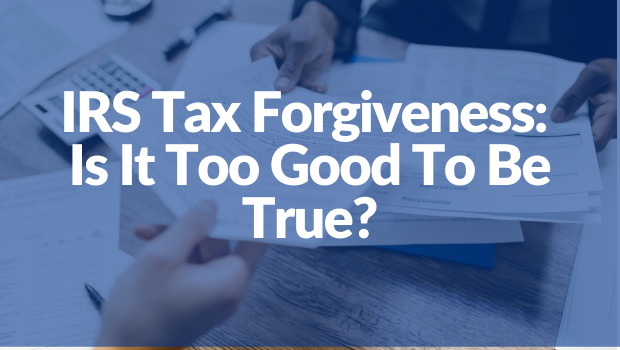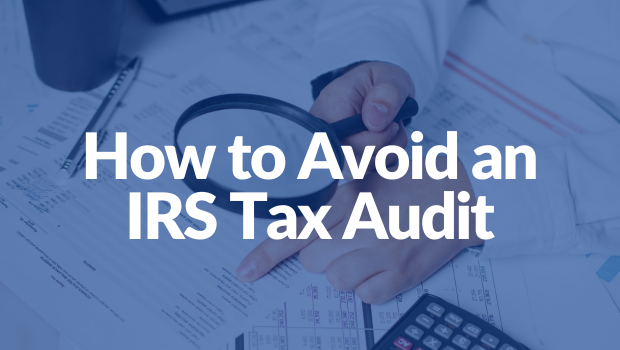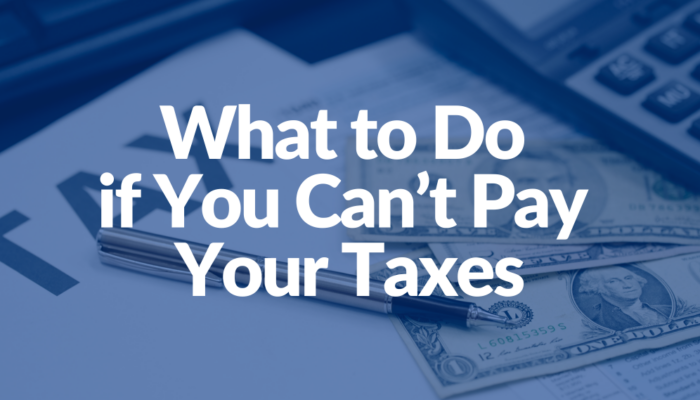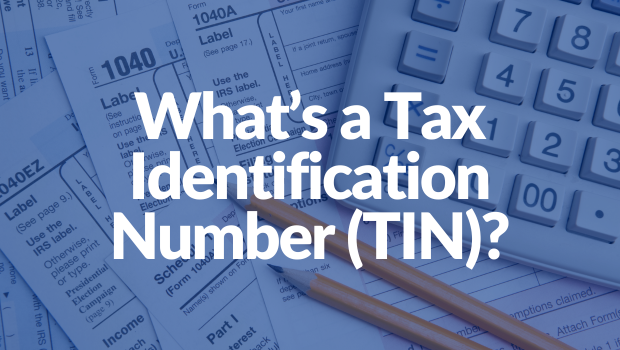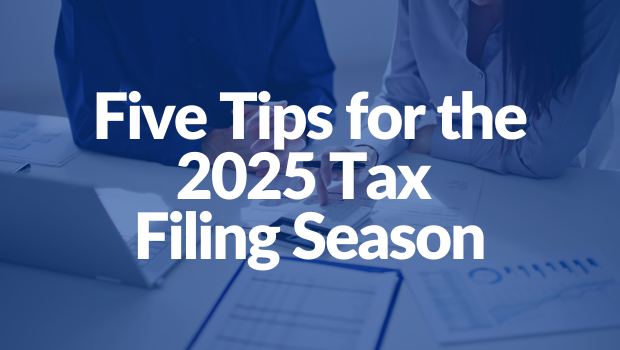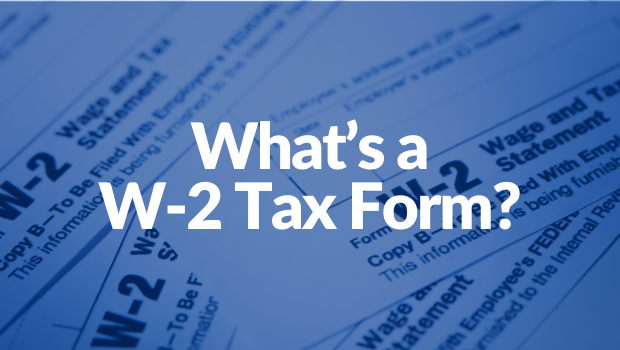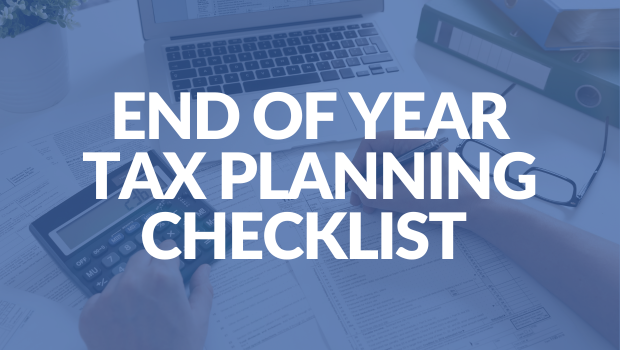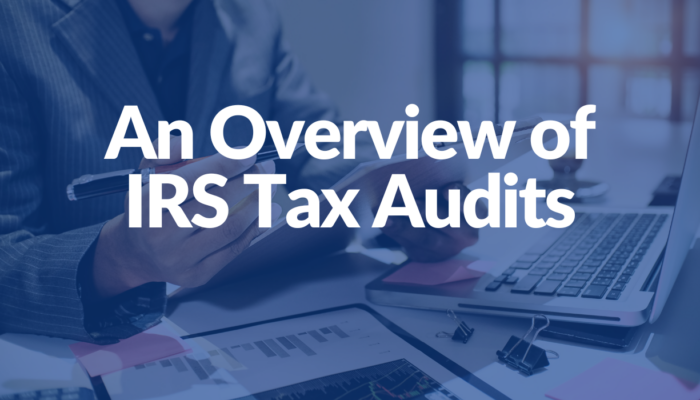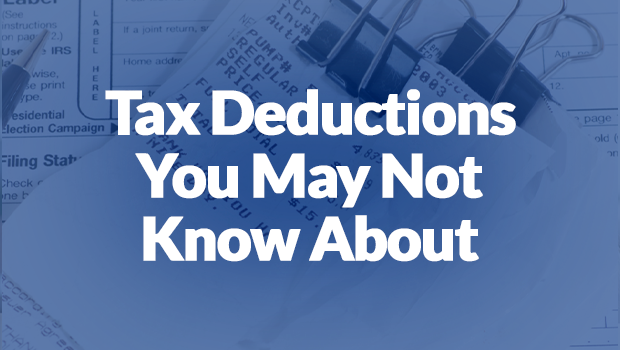Dealing with debt is difficult, but dealing with a tax debt with the IRS is even worse. Not only are many
tax debts not dischargeable in bankruptcy, but it’s easier for the IRS to get its money from you thanks to
things like tax liens and levies.
If you’re worried about one or more unpaid tax bills, you probably already know these things. But before
you hire a tax resolution firm that you heard about from television, radio, or an online ad, there are a
few things to keep in mind. Namely, that it’s not usually as easy to get the tax relief promised by some
tax relief companies. There are several reasons for this.
Reason #1: Tax Forgiveness isn’t a Real Program
There’s currently no official IRS program called “Tax Forgiveness” or “Fresh Start.” In the everyday
sense, tax forgiveness is real in that it’s sometimes possible to pay off an IRS tax balance for less than
the full amount. If you qualify to do this, however, you’ll be using one or more tax settlement options
offered by the IRS that go by other names or terms, such as:
- Penalty abatement
- Offer in compromise
- Innocent spouse relief
- Partial payment installment agreement
Reason #2: Any IRS Tax Balance Reduction is Often Less Than Advertised
If a tax relief company claims to be capable of settling your tax debt with the IRS for pennies on the
dollar, they technically aren’t lying. Paying off a tax debt for 10% or even 5% of the original amount is
possible, but it’s rare.
The exact amount an unpaid tax bill can be lowered depends on the type of relief sought, your financial
situation, your age, and the basis for requesting the relief. For example, if you can successfully prove to
the IRS that a tax debt isn’t yours or isn’t valid, then you can expect the entire debt to be wiped away.
In contrast, if your finances indicate you can afford to pay for basic living expenses and 90% of your tax
debt, it would be unreasonable to expect the IRS to settle your tax debt for 20% of the full amount.
Reason #3: There are Special Eligibility Requirements
The most popular way to resolve an IRS tax bill for less than the full amount is with an Offer in
Compromise, or OIC. This is what the IRS used to call the Fresh Start program. It allows taxpayers to
reduce their tax debts by providing an analysis of their current financial situation.
Convincing the IRS to accept your OIC is an arduous process. Offers often require extensive financial
disclosures and carefully presented factual and legal arguments. It can also take time to get a response
from the IRS after submitting the OIC.
Reason #4: It Takes Time to Obtain the Best Forms of Tax Relief
The process of submitting an OIC can take several months to complete. Then, once sent to the IRS, it
could take up to 12 months to get a decision (your OIC will be deemed automatically accepted if the IRS
doesn’t make a determination within two years of receiving your offer).
If you’re able to wipe away part of your tax debt with a Partial Payment Installment Agreement (PPIA), it
might take even more time. This is because the IRS agrees to forego any tax collection actions against
you, but only after the Collection Statute Expiration Date (CSED) has passed. The CSED is normally 10
years from the date of a tax assessment.
Get Help From a Tax Professional to Reduce Your IRS Tax Debt
As you can see, eliminating some, or most, of your tax debt is possible, but it takes time and effort. And
that assumes you’re even eligible for the type of tax relief you’re applying for. If you believe your tax
debt should be settled for less than the full amount, you need to be realistic about what to expect.
Therefore, it’s a good idea to first talk to a tax professional with experience handling unresolved tax
debts.

